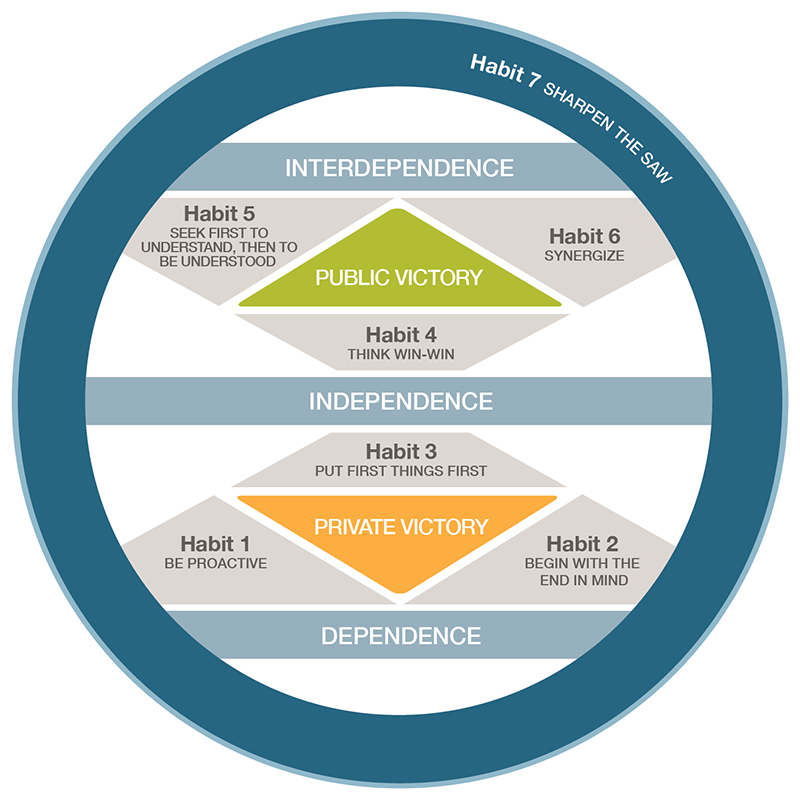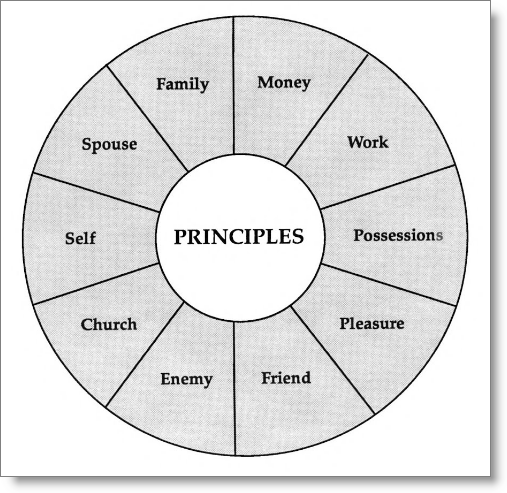The 7 Habits of Highly Effective People, by Stephen R. Covey. This has got to be one of my favorite books ever. It has a very clickbait title, I’ll be the first to admit it. Do not let that demotivate you. This book contains many invaluable teachings that will never age.
These are simple, maybe even obvious teachings, but I have a feeling we neglect it quite often. How come this is not taught in school ?
I will list the habits shortly, but first I will mention something I find fascinating about them. They have a chronological order, and that was a thoughtful choice of the author. The first three habits, for instance, focus on the self (he calls them private victory), and the other 4 focus on interactions with other people (public victory). This has a very good reason: it is not possible to focus on one’s interaction with other people if one doesn’t take care of oneself first.
The habits are:
- Habit 1: Be Proactive
- Habit 2: Begin with the end in mind
- Habit 3: Put first things first
- Habit 4: Think win-win
- Habit 5: Seek first to understand, then to be understood
- Habit 6: Synergize
- Habit 7: Sharpen the saw

There are quite a few concepts and tools the author introduces to better visualize all these habits. For this post I will focus on one: principles. He will explain that living by principles is the only way to find the discipline and motivation to follow these habits. Now, explaining the concept of principles doesn’t seem that easy to me but I will give it a shot.
The author considers principles to be the cornerstone of human morals. They have the same status as natural laws such as gravity and magnetic fields: they’re part of the universe and there is nothing we can do to change them. These natural laws play an important role in our society’s fabric: they are what grants us a fulfilling life, both as individuals and as a community. The author does not give a comprehensive list of principles, but I can cite a few scattered throughout the book: fairness, honesty, respect, vision, accountability, integrity and service.
Now, this principle framework goes hand in hand with another notion: the notion of a life’s center. We, human beings, tend to center our lives around one or a few things, such as family, money, work, family, church, oneself. This center would be the invisible hand which guides our actions in daily life. According to the author, this invisible hand can push us into the abyss if we don’t choose it carefully. All of these centers are important, and there is a time to attend to each of these items. However, all of them are fragile and should not be the center of our lives. Principles should. Principles are the only thing capable of providing us with the stability needed to face the harsh times and find fulfillment in all areas.

Now, I admit the discussion on principles can get very vague and philosophical. In this liquid world that we live in, where constant change is the norm, a discussion about timeless and immutable principles seems rather difficult. Still, even if you are not sure of your principles, you will find great knowledge in this book. I understand this short reflection might not be enough to persuade someone to read the book, but you should nevertheless give it a chance. I cannot recommend this book enough !
Any thoughts or comments? Are you fascinated by this book as I am? Feel free to leave a comment if you feel like it. :)
Images were taken from the book itself. All credits go to its author.
Thanks for making it this far! Did you like this blog post? Consider buying me a cup of coffee. :D